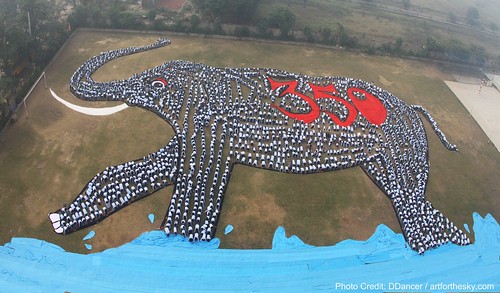Optimism Until the End
admin | December 2, 2010.
The first thing you notice about Bill McKibben is his long quintessentially American drawl. His tall thin frame looms over you as he talks; his minor hunch hinting at years spent head down writing.
McKibben has been writing about climate change for nearly 25 years, and is often credited as the first writer to take global warming to a mainstream audience. His first book The End of Nature was a success, and has been translated into over 20 languages. It is now regarded as a classic and founding work of climate change, and has only grown more relevant over the years.
Since the success of alerting the world to global warming in 1989, McKibben has worked tirelessly in the environmental movement. He most recently helped set up and lead 350.org, now recognized as one of the most influential environmental organizations in the world.
SYM spoke to McKibben after he delivered his keynote address at the sixth Conference of Youth, on the eve of the UN COP16 negotiations, in Cancún, Mexico.
His address was simple and strong. On the scenic stage on the top terrace of the Universidad del Caribe, as the blazing Cancún sun set behind him, McKibben told over 200 young activists that they were the ones who needed to urgently act to force governments to themselves urgently act on climate change.
“You need to build this movement up. They are not going to bail us out at COP,” he told the adoring crowd of young people gathered, “We really just can’t depend on [governments] to do it because they’re not doing it. We’re going have to build a force to push them.”
When asked about the role of young people in the SYM interview, McKibben showed a genuine respect and appreciation of today’s youth.
“Young people have, among many other virtues, no families, no mortgages; they can jump head on into things and really go after it,” he said.
“The youth has the bodies and passion and spirit and mobility; they can cross borders, culture, faith and wealth divides.”
His views on young people have influenced organizations he has been a part of. The highly successful grassroots organization 350.org was, after all, founded with a group of Middlebury students, who maintain an active role in the organization.
Since then the group has grown to become an international grassroots phenomenon, organizing global activities including the 10/10/10 Global Work Party and most recently 350 EARTH. The International Day of Climate Action in 2009 is regarded as the world’s most widespread day of political action, with over 5,000 actions in 181 countries.

3,000 students and teacher from New Delhi form the ‘Climate Elephant’ to draw attention to the elephant in the room – climate change – as part of 350 EARTH (DDancer/artforthesky.com).
McKibben is frank on the reason young people need to get involved – because it is not just nature that is at stake in the climate crisis, but this generation’s livelihoods.
We have to act now, he claims, otherwise the current youth and everyone who comes afterwards “will pay a deep price”.
It is funny then, to find that McKibben dislikes the ‘youth’ tag being placed on environmental organizations. He even pleads his audience at COY6 not to think of themselves as youth. “There is a great danger you will be patronized and condescended to,” he warns. His message is wise: for the movement to grow and be effective, it needs to be taken seriously. Only then will it effectively convey the public demand for urgent action to those who need to hear it.
Yet he is clearly troubled by the progress being made by the environmental movement. As if to provide the hyped up youth with a cold reality check, he warned that there was a very good chance that we won’t make it. He warned that the climate movement may not succeed.
To a hushed audience he compared the environmental movement to history’s other great social movements – the fight against slavery and the fight against colonialism. These movements, he said, always had an end in sight. Their problem lay solely within the human realm, and thus change was always possible. Fight slavery, end slavery. Fight colonialism, end colonialism. The movement for action on climate change, however, was completely different.
“There are no guarantees,” McKibben claims. “The window is closing fast, and I think we’re going to do it,” he adds to lift spirits, before again stressing that there is no inevitability of victory.
This theme is carried in his latest book, Eaarth, which talks about adaption to the new climate humans have imposed upon the planet. No longer is Earth the relatively stable planet on which civilization flourished – we have carbonized that out of existence. We have exceeded the bearable threshold – 350 parts per million – for carbon dioxide in our atmosphere, and judging by international inaction on the issue, are fast approaching the devastating 650 parts per million. These changes are so pervasive and irreversible that one-a Earth no longer exists. This is two-a Earth.
Unfortunately, going by the current progress at COP16, it seems McKibben is right. Nations are much more willing to act on international adaption then they are on international mitigation. On day one of COP16, adaption garnered far more attention and received more consensus than anything else.
Despite all this McKibben still maintains some optimism that significant gains will be made on climate change.
“We haven’t gotten there yet. There’s still fighting to be done usefully, and as long as there is it seems like the kind of moral obligation to do it,”
As he puts it, there is one guarantee in the fight against climate change, “that people like you will keep fighting.”
“It’s a great honour for y’all, to deal with the most important thing ever on this planet,” McKibben finishes in that iconic slow drawl.
As he walks from the interview, you can’t but wonder what continues to fuel McKibben after all these frustrating years. Maybe it’s the youth he surrounds himself with; maybe it’s the moral obligation he feels to fight climate inaction by governments. Whatever it is, McKibben’s example and advice provide valuable lessons to the global environmental movement. This is the most urgent moment in the planet’s history, and only we can make the change.
–
To watch the interview with Bill McKibben, click here.











comment